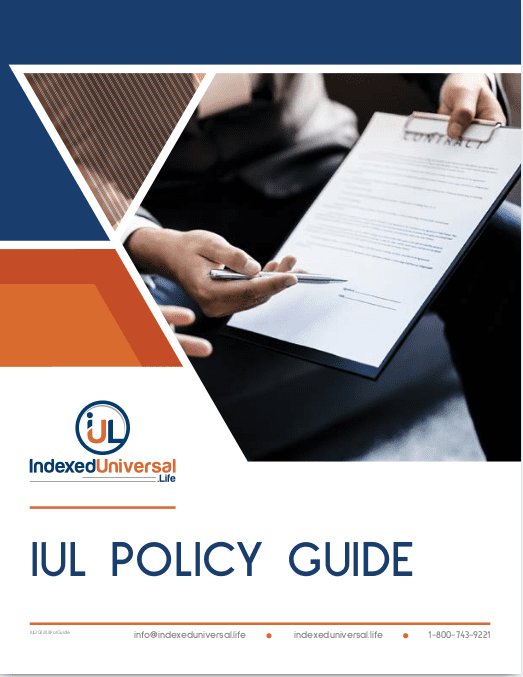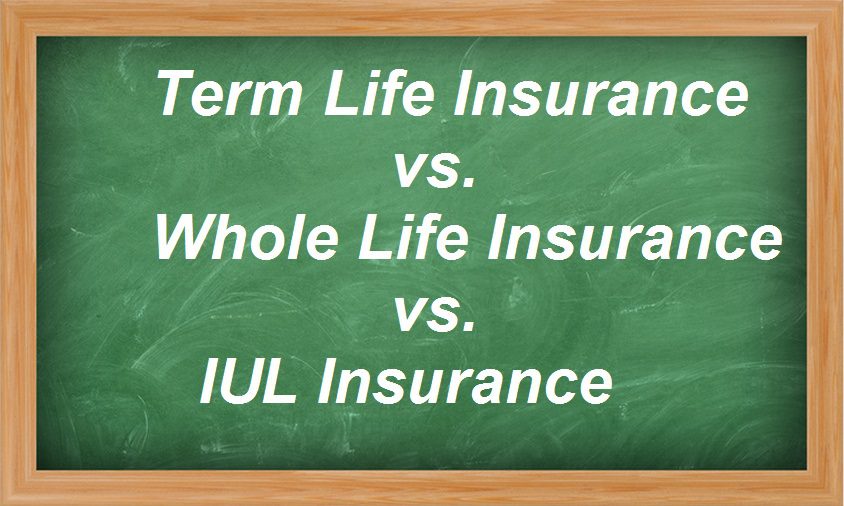All Categories
Featured
Table of Contents
Do they contrast the IUL to something like the Lead Total Amount Stock Market Fund Admiral Shares with no tons, a cost proportion (EMERGENCY ROOM) of 5 basis points, a turn over ratio of 4.3%, and a phenomenal tax-efficient record of circulations? No, they contrast it to some awful proactively handled fund with an 8% tons, a 2% EMERGENCY ROOM, an 80% turnover proportion, and a dreadful document of temporary funding gain circulations.
Shared funds commonly make yearly taxable distributions to fund proprietors, also when the worth of their fund has gone down in value. Shared funds not only need earnings reporting (and the resulting yearly taxes) when the shared fund is increasing in value, yet can likewise impose earnings tax obligations in a year when the fund has actually dropped in worth.
You can tax-manage the fund, gathering losses and gains in order to decrease taxed distributions to the investors, but that isn't in some way going to change the reported return of the fund. The possession of common funds may need the shared fund proprietor to pay approximated taxes (universal life policy calculator).

IULs are very easy to place so that, at the owner's fatality, the beneficiary is exempt to either income or inheritance tax. The exact same tax obligation decrease techniques do not work virtually also with shared funds. There are numerous, typically expensive, tax obligation catches connected with the timed trading of mutual fund shares, traps that do not relate to indexed life Insurance.
Possibilities aren't very high that you're going to be subject to the AMT because of your shared fund circulations if you aren't without them. The remainder of this one is half-truths at best. For instance, while it is true that there is no revenue tax obligation because of your heirs when they inherit the proceeds of your IUL plan, it is likewise true that there is no income tax due to your successors when they inherit a mutual fund in a taxed account from you.
Indexed Life Insurance Pros Cons
There are much better ways to avoid estate tax problems than getting investments with reduced returns. Common funds may create earnings tax of Social Safety benefits.

The development within the IUL is tax-deferred and might be taken as tax cost-free income by means of finances. The plan owner (vs. the mutual fund supervisor) is in control of his/her reportable revenue, hence enabling them to reduce and even eliminate the taxes of their Social Safety advantages. This set is great.
Below's an additional very little problem. It holds true if you acquire a shared fund for say $10 per share right before the distribution day, and it distributes a $0.50 circulation, you are then going to owe tax obligations (most likely 7-10 cents per share) in spite of the reality that you haven't yet had any gains.
Yet in the long run, it's actually regarding the after-tax return, not exactly how much you pay in taxes. You are mosting likely to pay even more in taxes by making use of a taxed account than if you acquire life insurance policy. You're likewise probably going to have more cash after paying those taxes. The record-keeping requirements for possessing shared funds are significantly a lot more complex.
With an IUL, one's records are maintained by the insurer, copies of annual statements are sent by mail to the owner, and distributions (if any kind of) are amounted to and reported at year end. This is likewise type of silly. Of training course you should keep your tax obligation records in case of an audit.
Iul As A Retirement Vehicle
All you have to do is push the paper right into your tax folder when it appears in the mail. Rarely a factor to buy life insurance policy. It's like this guy has never bought a taxed account or something. Shared funds are typically part of a decedent's probated estate.
In addition, they go through the hold-ups and costs of probate. The proceeds of the IUL policy, on the other hand, is always a non-probate distribution that passes beyond probate straight to one's called recipients, and is consequently not subject to one's posthumous creditors, unwanted public disclosure, or similar hold-ups and prices.
We covered this under # 7, yet simply to wrap up, if you have a taxed common fund account, you must place it in a revocable trust (and even simpler, make use of the Transfer on Fatality designation) to avoid probate. Medicaid disqualification and lifetime income. An IUL can provide their proprietors with a stream of revenue for their entire life time, despite just how lengthy they live.

This is valuable when arranging one's affairs, and converting assets to earnings prior to an assisted living home arrest. Shared funds can not be transformed in a similar way, and are virtually constantly thought about countable Medicaid properties. This is an additional silly one promoting that bad people (you understand, the ones who require Medicaid, a government program for the poor, to spend for their assisted living facility) must make use of IUL rather of mutual funds.
What Is The Difference Between Universal And Term Life Insurance
And life insurance coverage looks dreadful when contrasted relatively versus a pension. Second, people who have money to purchase IUL above and past their retirement accounts are mosting likely to have to be awful at managing cash in order to ever before certify for Medicaid to pay for their assisted living home expenses.
Chronic and incurable disease motorcyclist. All policies will certainly enable an owner's very easy accessibility to cash money from their plan, commonly forgoing any type of surrender fines when such individuals experience a serious disease, require at-home care, or come to be restricted to a nursing home. Shared funds do not give a similar waiver when contingent deferred sales charges still use to a common fund account whose proprietor needs to sell some shares to money the prices of such a stay.
How Does Group Universal Life Insurance Work
You obtain to pay even more for that benefit (motorcyclist) with an insurance plan. Indexed global life insurance coverage supplies fatality advantages to the recipients of the IUL proprietors, and neither the proprietor nor the recipient can ever before lose cash due to a down market.
I certainly don't require one after I reach financial freedom. Do I desire one? On average, a buyer of life insurance coverage pays for the real cost of the life insurance benefit, plus the expenses of the policy, plus the earnings of the insurance policy firm.
Equity Indexed Life Insurance Definition
I'm not entirely sure why Mr. Morais included the entire "you can't shed money" again here as it was covered fairly well in # 1. He simply wanted to repeat the very best selling factor for these things I intend. Once more, you don't lose small bucks, but you can lose genuine bucks, in addition to face serious opportunity price because of reduced returns.

An indexed universal life insurance policy policy owner might trade their policy for a totally different policy without triggering income taxes. A common fund proprietor can not relocate funds from one mutual fund company to one more without marketing his shares at the former (thus triggering a taxable occasion), and buying new shares at the last, typically subject to sales fees at both.
While it holds true that you can trade one insurance coverage plan for one more, the reason that individuals do this is that the very first one is such a dreadful plan that even after acquiring a brand-new one and undergoing the very early, negative return years, you'll still appear ahead. If they were offered the right plan the very first time, they shouldn't have any need to ever before trade it and go through the very early, adverse return years again.
Table of Contents
Latest Posts
Iul L
Best Iul Policies
Financial Foundation Iul
More
Latest Posts
Iul L
Best Iul Policies
Financial Foundation Iul